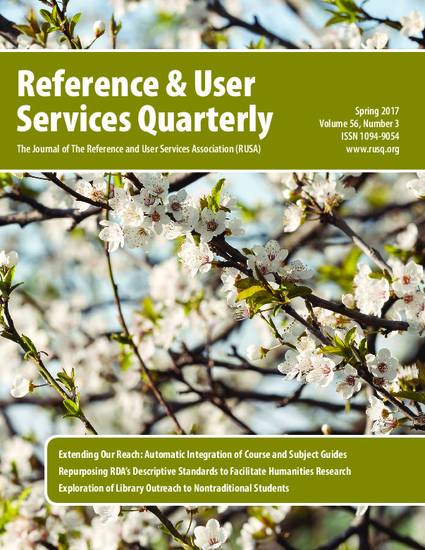
Article
Repurposing RDA’s Descriptive Standards to Facilitate Humanities Research: Making a Case for Howard University’s “Portal to the Black Experience” and Similar Neo-traditional Research Tools
Reference & User Services Quarterly (RUSQ)
(2017)
Abstract
Research institutions are challenging academic librarians and archivists to develop new tools and services that aid in the traditional, essential tasks of research. Prototypical tools combining structured biographical information with modern cyber-infrastructure have been developed to help humanities researchers identify relationships among individuals, and connections between individuals and their institutional affiliations, race, gender, and published works. Such tools promote the research task of “chaining” and support prosopography. They also advance the notion that an integral activity of academic librarians and archivists should be to develop innovative discovery platforms that support traditional research methodologies conducted in new digital environments.
Keywords
- Information Science
Disciplines
Publication Date
Spring 2017
Citation Information
Andrew T. Sulavik and Seth Kronemer. "Repurposing RDA’s Descriptive Standards to Facilitate Humanities Research: Making a Case for Howard University’s “Portal to the Black Experience” and Similar Neo-traditional Research Tools" Reference & User Services Quarterly (RUSQ) Vol. 56 Iss. 3 (2017) p. 190 - 198 Available at: http://works.bepress.com/andrew_sulavik/25/
